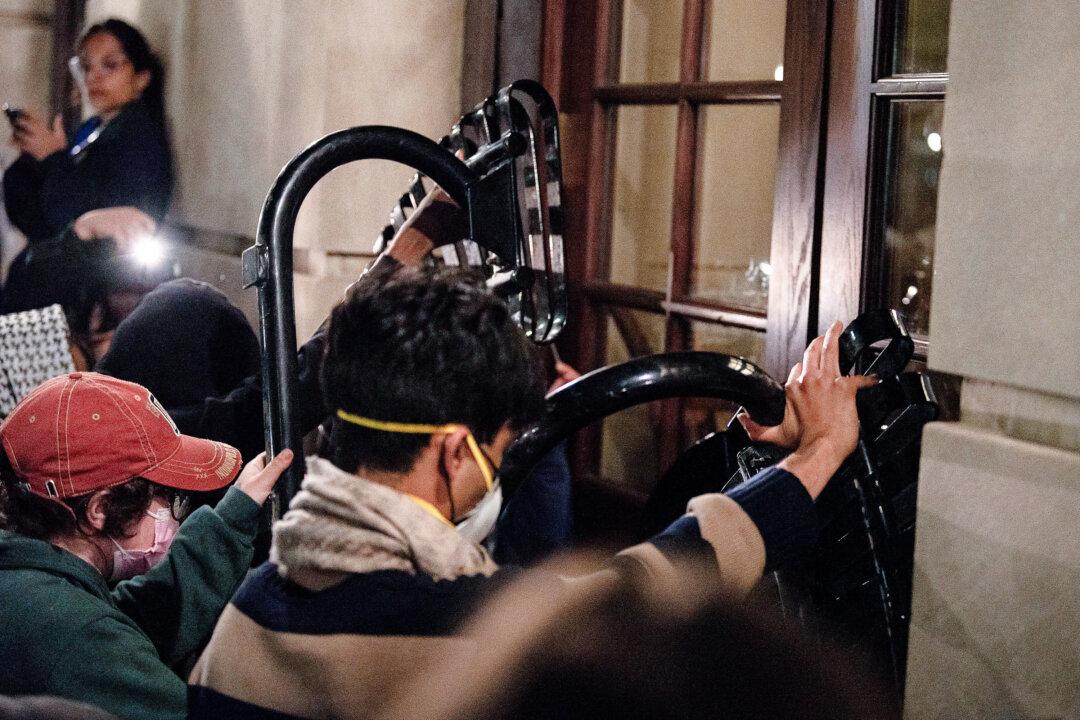Columbia University has warned students who took over and barricaded themselves inside a building on campus as part of an ongoing pro-Palestinian demonstration that they face now expulsion.
Protesters first took over Hamilton Hall early on Tuesday morning after defying orders to disperse from an earlier encampment they had set up at Columbia University’s Morningside Campus in New York City. Participants were seen vandalizing the building and moving furniture and other items into the entryways.





